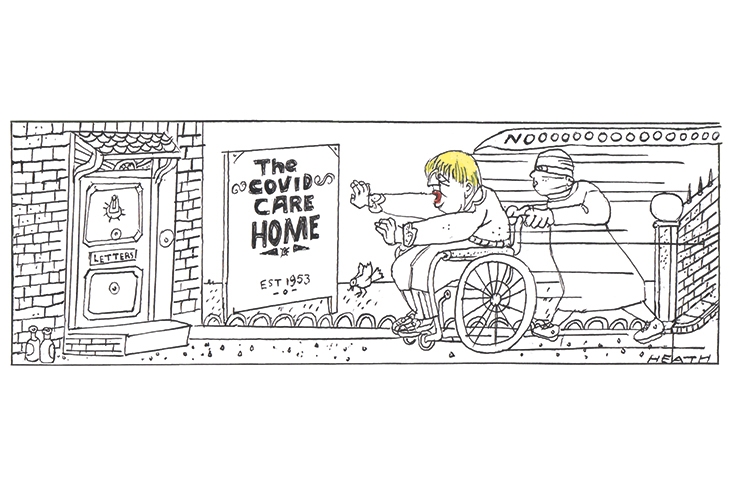Home
Rishi Sunak, the Chancellor of the Exchequer, announced measures intended to stimulate the economy. Under a £111 million scheme, companies in England would be given £1,000 for each new work experience place they offered. Under a £2 billion scheme, householders would be given two-thirds of the cost of energy-saving work such as insulation, up to £5,000. The government made available £1.57 billion in emergency support for the arts and heritage sites; it was to go to institutions, not freelance performers. Among business failures and job losses, sandwich chain Pret A Manger was to close 30 of its 410 shops and lose 1,000 staff. Up to 5,000 jobs were to be cut at the Upper Crust sandwich chain and other cafés owned by the SSP Group. T.M. Lewin the shirtmakers closed its 66 shops, losing 600 jobs. Reach, which owns the Daily Mirror and Daily Express, cut 550 jobs, 12 per cent of its workforce. Harrods and WHSmith cut staff. Staff at Asda in Llanelli found a tree frog from Colombia among bananas.
At the beginning of the week, Sunday 5 July, total deaths from Covid-19 stood at 44,198; a week earlier the total had been 43,514. For the second week in a row, deaths in the UK from all causes fell below the average for the time of year. In care homes between 2 March and 12 June, 66,000 people died, compared with 37,000 last year; but a third of the excess deaths were not directly attributed to coronavirus. Three pubs, among many that opened on 4 July, closed again when customers were later found to have Covid-19. In an investigation of sweatshops in Leicester (where coronavirus restrictions had been reimposed), the Sunday Times reported that workers at a factory making clothes for Boohoo’s Nasty Gal brand could expect to be paid £3.50 an hour. Asos and Next dropped Boohoo from their online sales. Britain imposed sanctions on 49 people and organisations, including those implicated in the killing of Sergei Magnitsky in Russia and of Jamal Khashoggi in the Saudi consulate in Istanbul.
The Cass Business School said it was changing its name because its benefactor Sir John Cass (1661-1718) was a director of the Royal African Company, which dealt in slaves. David Starkey, the television historian, apologised for having said that the Atlantic slave trade had not been genocide because ‘so many damn blacks’ were left; he lost an honorary fellowship at Cambridge, a visiting professorship and an agreement to publish the second volume of his autobiography.
Abroad
The world total of people who had died with coronavirus stood at 532,873 by the beginning of the week. With 132,318 deaths, the United States saw an upsurge of cases but a diminution in daily deaths. Cases rose steeply in India and deaths edged up in Brazil. President Jair Bolsonaro of Brazil was found in a test to have the coronavirus. A study of 68,000 people in Spain found that only 5.2 per cent had antibodies to Covid-19. Melbourne, Victoria, Australia’s second biggest city, reimposed restriction. New South Wales closed its border with Victoria. New Zealand limited incoming flights according to availability of quarantine space. Sweden introduced social-distancing of at least a metre in bars and restaurants. Ennio Morricone, who composed the music for The Good, the Bad and the Ugly, died at 91.
Liu Xiaoming, the Chinese ambassador to the United Kingdom, told off its government for ‘gross interference’ through repeated ‘irresponsible remarks on Hong Kong affairs’. He was reacting to Britain’s offer of entry to up to three million British Nationals (Overseas). Britain’s National Cyber Security Centre delivered to its government findings on the security risks of Huawei’s products. The Washington Redskins American football team was to review its name in response to demands by sponsors. A statue of the former slave Frederick Douglass in Rochester, New York, was toppled by unknown hands. There was a fire at the Natanz nuclear plant in Iran. Hisham al-Hashimi, an Iraqi expert on armed groups, who had been threatened by Sunni jihadists and Shia militias, was shot dead in Baghdad.
In Japan, Fujitsu said working from home would be the norm for its 80,000 staff. In Russia Ivan Safronov, of the Russian space agency, was arrested, accused of espionage for an unnamed Nato country. Russian police warned shepherds living near Mongolia not to hunt marmots, after at least two people caught bubonic plague in the Mongolian province of Khovd. CSH






Comments